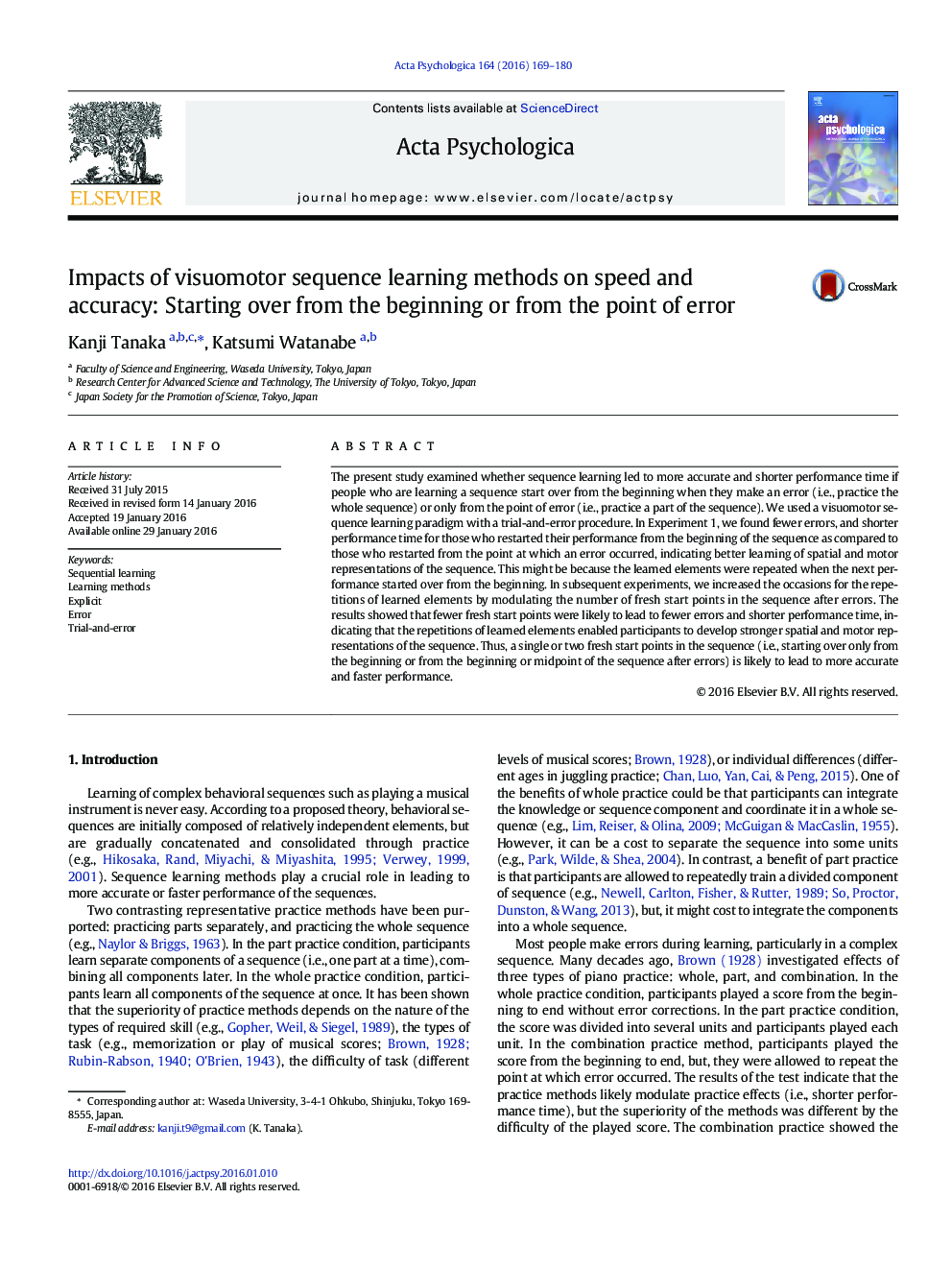| Article ID | Journal | Published Year | Pages | File Type |
|---|---|---|---|---|
| 919671 | Acta Psychologica | 2016 | 12 Pages |
•Starting over from the beginning leads to a more accurate and faster performance.•Starting over from the error point leads to a less accurate and slower performance.•The number of fresh start points in a sequence modulates sequence learning performances.
The present study examined whether sequence learning led to more accurate and shorter performance time if people who are learning a sequence start over from the beginning when they make an error (i.e., practice the whole sequence) or only from the point of error (i.e., practice a part of the sequence). We used a visuomotor sequence learning paradigm with a trial-and-error procedure. In Experiment 1, we found fewer errors, and shorter performance time for those who restarted their performance from the beginning of the sequence as compared to those who restarted from the point at which an error occurred, indicating better learning of spatial and motor representations of the sequence. This might be because the learned elements were repeated when the next performance started over from the beginning. In subsequent experiments, we increased the occasions for the repetitions of learned elements by modulating the number of fresh start points in the sequence after errors. The results showed that fewer fresh start points were likely to lead to fewer errors and shorter performance time, indicating that the repetitions of learned elements enabled participants to develop stronger spatial and motor representations of the sequence. Thus, a single or two fresh start points in the sequence (i.e., starting over only from the beginning or from the beginning or midpoint of the sequence after errors) is likely to lead to more accurate and faster performance.
